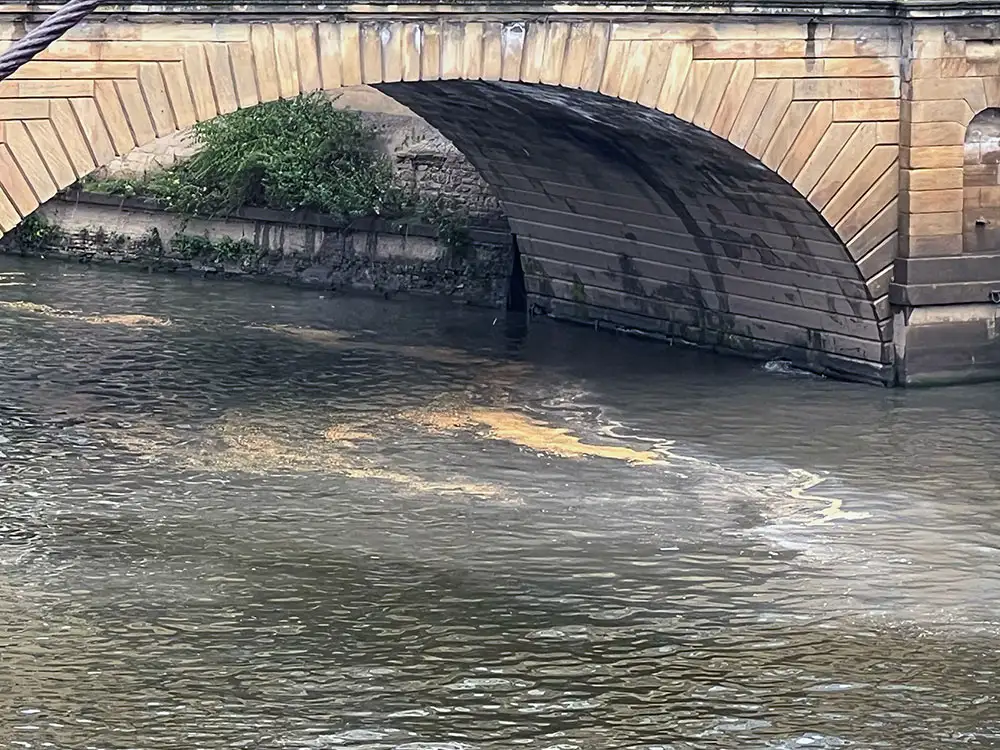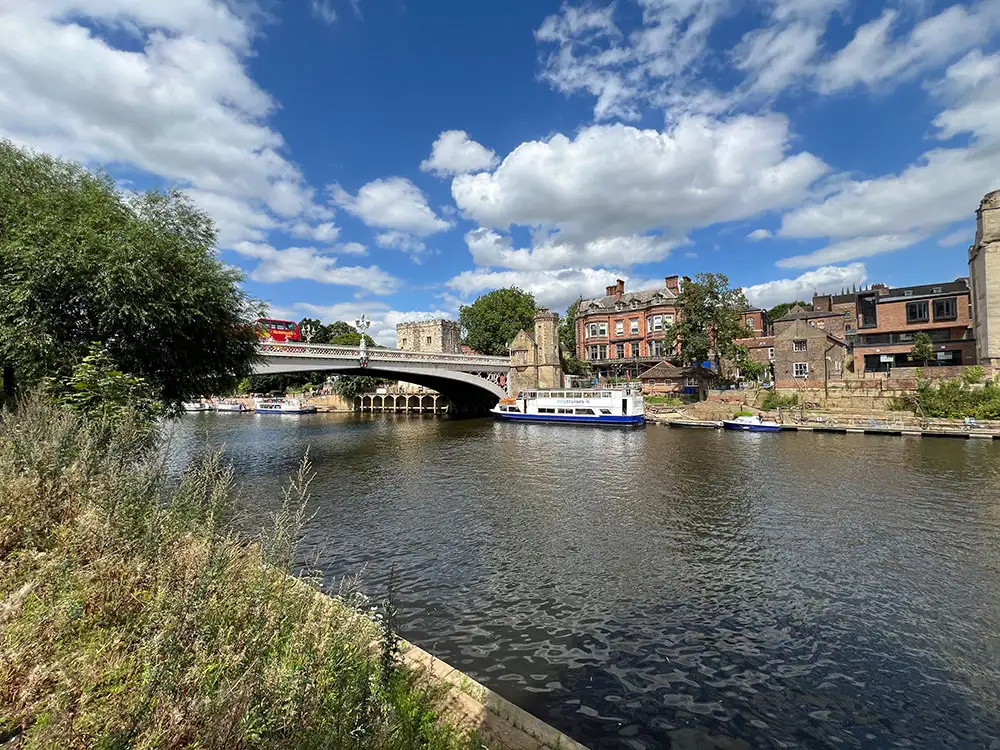Yorkshire Water’s storm overflows spilled sewage into the county’s rivers, lakes and coast for 430,263 hours last year.
That’s the equivalent of nearly 18,000 days or 49 years.
But that figure is down by 17%, or 87K hours, which shows the company is “beginning to tackle this issue”, the MD says.
The Environment Agency released the 2024 figures today.
The most prominent storm overflow in York is the one close to Ouse Bridge, under the Boots store.
In 2023 it discharged sewage into the river in the heart of York for 3,649 hours. That had dropped to 3,602 hours last year.
Nicola Shaw, chief executive of Yorkshire Water, said: “We know overflows are operating more than we, or our customers, would like, but we’re pleased to begin to show progress on reducing storm overflow activity in our region.

“The reductions in discharges in 2024 resulted from both a drier year than 2023 and the hard work of our teams to deliver our £180m investment programme.”
The project, which was partly funded by shareholders, contributed to the reduction in discharges in 2024, as it focused on the overflows that were operating the most often, or for the longest time.
A total of £170K was spent on improving two overflows in York – the one under Boots and the Fishergate overflow which discharges into the Foss.
National picture ‘disgraceful’
Nationally storm overflows let sewage spill for 3,614,428 hours in 2024, slightly up on 2023’s 3,606,170 hours, and a record high.
The latest figures were branded as “disgraceful” by Environment Secretary Steve Reed, and a “stark reminder of how years of under-investment have led to water companies discharging unacceptable levels of sewage into our rivers, lakes and seas”.
Mr Reed pointed to “tough special measures” the Government had put on water companies, and said more than £100 billion in private funding had been secured for the next five years to invest in the water system.
But with high public anger over the polluted and degraded state of England’s rivers, lakes and seas, and significant bill rises coming next month to pay for the investment, campaigners and opposition politicians called for wholesale reform of the water sector and its regulators.
Liberal Democrat leader Sir Ed Davey said the figures had to be the “final nail in the coffin” for water regulator Ofwat.
“The Government should act now to get a new regulator in place to protect British rivers and seas from being pumped with disgusting sewage. It’s time for Ofwat to go,” he said.
And public ownership campaign group We Own It’s lead campaigner Matthew Topham said the state of the water sector was the “catastrophic failure” of privatisation.
“The obvious solution is to bring water back into public ownership. Profits can be reinvested to tackle the sewage crisis and lower bills,” he argued.
